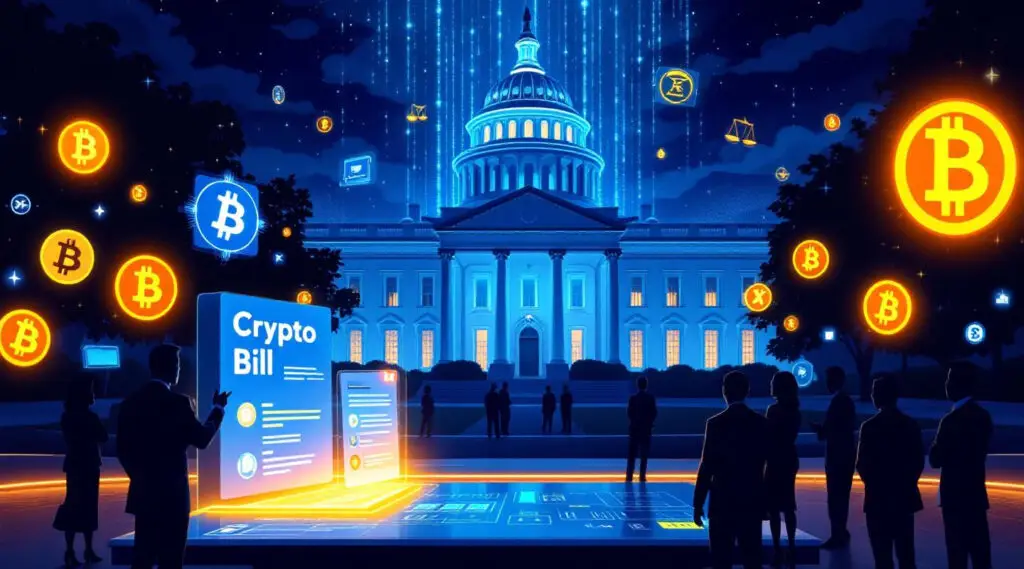Mounting political scrutiny is now targeting federal regulators amidst explosive allegations that major banks were pressured to cut ties with lawful cryptocurrency businesses under shifting oversight rules. The U.S. House Oversight and Government Reform Committee has launched an investigation into these claims, signaling a serious inquiry into whether federal oversight has indirectly orchestrated efforts to freeze out crypto-linked and politically disfavored entities. This probe aims to uncover the extent of regulatory influence on banking decisions and its impact on the digital asset industry.
Federal Oversight Questioned Over Bank Debanking
Political pressure is intensifying scrutiny on federal banking oversight as lawmakers investigate whether regulators have indirectly orchestrated efforts to freeze out crypto-linked and politically disfavored businesses. U.S. House Oversight and Government Reform Committee Chair James Comer announced on June 25 that the committee is seeking records from the U.S. Office of the Comptroller of the Currency (OCC) to determine if major banks have been coerced into debanking lawful American entities. This investigation aims to shed light on potential regulatory overreach.
Committee Seeks OCC Records on Debanking
Chairman Comer’s letter to Acting Comptroller Rodney Hood specifically requests internal communications and detailed enforcement information. The inquiry focuses particularly on the OCC’s issuance and subsequent March 7 revocation of Interpretive Letter 1179. This letter had previously laid the groundwork for federally chartered banks to engage with digital asset businesses, and its reversal has raised questions about regulatory consistency and potential undue influence on banking practices.
Investigating ‘Improper Debanking’ Allegations
Comer explicitly stated that the Committee on Oversight and Government Reform is investigating the “improper debanking of individuals and entities based on political viewpoints or involvement in certain industries such as cryptocurrency and blockchain.” This investigation builds upon earlier outreach, including a January 24 request to blockchain companies and a February 27 letter to the Federal Deposit Insurance Corporation (FDIC) regarding debanking experiences. Comer cited whistleblower concerns that previous agency responses had not adequately addressed issues within major financial institutions under OCC jurisdiction.
Scrutiny on Regulatory Influence in Digital Assets
Chairman Comer underscored the critical importance of examining how regulators might be influencing or deterring institutional interest and expansion into digital assets. He stated that the Committee seeks information about the OCC’s enforcement of financial institutions’ engagement with crypto and crypto-related businesses, especially given the OCC’s role as the primary regulator for the nation’s largest banks. This scrutiny aims to ensure that regulatory actions foster, rather than hinder, legitimate innovation in the digital asset space.
OCC’s New Guidance and Policy Shifts
In the wake of these developments, the OCC issued new guidance for national banks and federal savings associations concerning crypto-asset activities. Interpretive Letter 1183, released in March 2025, formally rescinded Interpretive Letter 1179, thereby removing the requirement for supervisory non-objection for actions including crypto-asset custody, stablecoin reserve services, and participation in distributed ledger technology (DLT) networks. Additionally, the OCC withdrew from select interagency statements addressing crypto-asset risks, indicating a shift towards a more permissive, yet still cautious, regulatory stance.
Banks’ Continued Responsibility for Risk Management
Despite the removal of explicit OCC approval requirements, banks are still mandated to conduct crypto-related operations in a manner deemed safe and sound. They must comply with all relevant laws and implement rigorous risk management frameworks. This ensures that while regulatory hurdles may be lowered, financial institutions remain fully accountable for managing the inherent risks associated with digital asset activities, maintaining the integrity and stability of the financial system.























